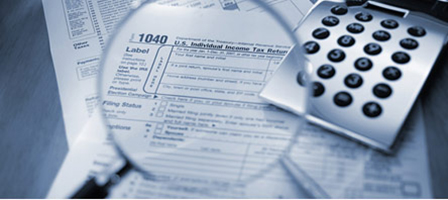SO YOU WANT TO DEDUCT YOUR GAMBLING LOSSES?
Article Highlights
- Gambling winnings must be reported as taxable income.
- Gambling losses may be deducted as an itemized deduction.
- Losses cannot exceed winnings.
- Losses must be documented.
- Winnings must include all winnings not just those shown on a W-2G.
Good news…You can! However, the bad news is that gambling losses are only deductible up to the amount of your winnings. This means that you can use your losses to offset your winnings, but you can never show a net gambling loss on your tax return.
Gambling losses are only deductible as a miscellaneous itemized deduction, so you must itemize your deductions in order to claim the deduction. Even better news is that gambling losses are not subject to either the 2% of AGI reduction of miscellaneous deductions or the phase out of itemized deductions for high-income taxpayers.
Form W-2G is issued by a casino or other payer to some lucky winners with a copy going to the IRS. Generally, only winners of the following types of gambling activities will be issued a W-2G: bingo or slot machine players who win $1,200 or more, keno winners of $1,500 or more, gamblers in other activities who win $600 or more when the payout is 300 times or more of the wager amount, and poker tournament players winning $5,000 or more. Sometimes federal income tax is withheld on the winnings; in that case a W-2G is issued regardless of the type of gambling activity.
Many casual gamblers have the belief that they need only count as winnings those reported on a Form W-2G. Unfortunately that is not true; tax law requires all winnings to be reported whether or not included in a W-2G. This is a frequent issue when the IRS chooses to audit a return where the losses offset the winnings but only winnings included in the W-2G are being reported.
The next logical question is how are gambling losses documented? Don’t rush down to the track and start collecting discarded tickets, since they generally aren’t acceptable documentation because of their ready availability. The IRS has published guidelines on what is acceptable documentation to verify losses. They indicate that an accurate diary or similar record regularly maintained by the taxpayer, supplemented by verifiable documentation, will usually be acceptable evidence for substantiation of wagering winnings and losses. In general, that diary should contain at least the following information:
- Date and type of specific wager or wagering activity,
- Name of gambling establishment,
- Address or location of gambling establishment,
- Names of other persons (if any) present with taxpayer at the gambling establishment, and
- Amounts won or lost.
Save all available documentation including such items as losing tickets, canceled checks, and casino credit slips. You should also save any related documentation such as hotel bills, plane tickets, entry tickets and other items that would document your presence at a gambling location. (Sorry, but the costs for lodging and meals while gambling, even for winners, aren’t deductible.) If you are a member of a slot club, the casino may be able to provide a record of your play. You might also obtain affidavits from responsible gambling officials at the gambling facility.
If you are a meticulous record keeper, the IRS recognizes the concept of gambling sessions that allows you to net the gains and losses during a particular gambling session. However, a gambling session is very limited in scope. It must be the same type of uninterrupted wagering during a specific uninterrupted period of time at a specific location. Thus if a taxpayer entered a casino and played slots for an hour and then switched to craps for the next hour, that would be two separate gambling sessions. If a taxpayer entered Casino #1 and played slots for an hour and then went to Casino #2 and continued to play slots, that would be two separate gambling activities since two locations were involved. The following are two examples using the gambling sessions concept:
Example – A casual gambler who enters a casino with $100 and loses the entire amount after playing the slot machines has a wagering loss of $100, even though he may have had winning spins of $1,000 and losing spins of $1,100 during the course of play.
With regard to specific wagering transactions, winnings and losses might be further supported by:
- Keno – Copies of keno tickets purchased by the taxpayer and validated by the gambling establishment.
- Slot Machines – A record of all winnings by date and time that the machine was played.
- Table Games -The number of the table at which the taxpayer was playing. Casino credit card data indicating whether credit was issued in the pit or at the cashier’s cage.
- Bingo – A record of the number of games played, cost of tickets purchased and amounts collected on winning tickets.
- Racing – A record of the races, entries, amounts of wagers, and amounts collected on winning tickets and lost on losing tickets. Supplemental records include unredeemed tickets and payment records from the racetrack.
- Lotteries – A record of ticket purchase dates, winnings and losses. Supplemental records include unredeemed tickets, payment slips and winning statements.
One final tip: the deductions you claim for gambling losses do not have to be for the same type of wagering activity for which you have gambling winnings. For example, say for the year you won $800, all from a slot machine jackpot, and you have documentation to support $300 of slot machine losses. You also spent $50 per month buying lottery tickets, but had no winners, and have the records to substantiate your lottery ticket purchases. You would be able to deduct $800 of gambling losses, which includes $300 of slot losses plus $500 of the $600 of lottery losses. Your total gambling deduction is limited to $800, the amount of your winnings.
If you had a big win, are concerned about your tax liability, or have any questions related to gambling winnings or losses, please give this office a call.








Leave a Reply
Want to join the discussion?Feel free to contribute!